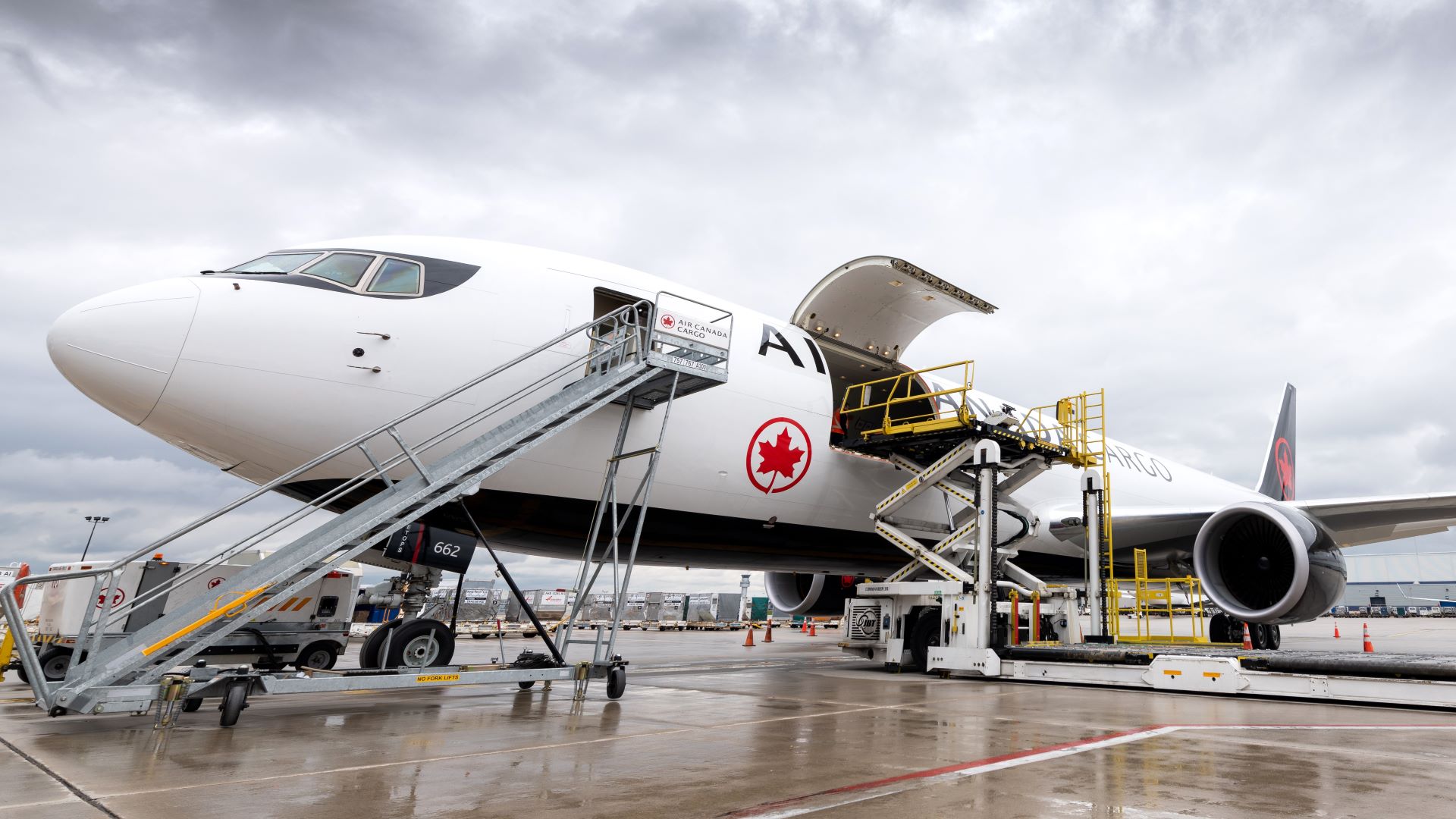Government Action Mitigates Cargo Disruption for Shippers
主なハイライト
- The Canadian government intervened to enforce binding arbitration, reinstating negotiations between Air Canada and its flight attendants union.
- This move is seen as essential in safeguarding the Canadian economy by ensuring the consistent flow of air travel and cargo transport, critical for essential goods.
- The flight attendants union opposed the government’s actions, arguing that it undermines labor rights and sides with Air Canada’s interests.
- Air Canada initially faced delays in resuming operations due to union directives encouraging flight attendants to defy return-to-work instructions.
(UPDATED Sunday Aug. 17, 2025, 1:30 p.m. ET)
In a significant turn of events, the Canadian government directed Air Canada and its flight attendants to re-engage in negotiations through binding arbitration, allowing the airline to recommence operations just hours after a strike commenced among flight attendants. This intervention highlights the urgent need for addressing labor disputes that can potentially cripple vital sectors of the economy.
Patty Hajdu, Minister of Jobs and Families, justified the government action as a necessary measure to protect the fluctuating Canadian economy, which is currently facing tariff challenges. The intervention was particularly welcomed by many businesses reliant on air cargo transport that could face significant disruption due to the strike.
The union representing flight attendants, CUPE, has voiced strong criticism against the binding arbitration, claiming it diminishes the bargaining power of workers. In a pointed statement, CUPE representatives expressed their dissatisfaction, citing the decision as a “blatant betrayal” of workers’ rights and an act of corporate favoritism towards Air Canada.
Airline Operations and Public Response
Initially, Air Canada planned to resume services shortly after the strike began, but that timeline was pushed back because CUPE instructed crew members to not comply with the return-to-work order issued by the Canadian Industrial Relations Board. Approximately 240 flights were scheduled for the day, which were subsequently canceled. It is noteworthy that the airline usually operates around 700 flights daily, but officials anticipate that achieving full operational capacity will require several days, as the strike has complicated the positioning of aircraft and crew members for regular schedules.
As concerns grew among travelers and merchants relying on air freight, business organizations such as the Canadian Chamber of Commerce and the Canadian Federation of Independent Businesses highlighted urgent needs for uninterrupted air service. Many voiced worries that a prolonged strike could affect the delivery of critical supplies like pharmaceuticals and perishable foods, significantly hitting sectors already facing challenges from escalating trade disputes with the United States.
Impact on Air Canada Cargo Operations
Air Canada Cargo swiftly implemented strategies to maintain its freighter operations, albeit on a modified schedule. The flight attendants union established a strike deadline after lengthy negotiations failed to yield a satisfactory contract agreement over several months.
Minister Hajdu expressed disappointment over the impasse, remarking that it had become increasingly clear that the issues would not be resolved through typical negotiation processes. The impacts of the work stoppage were already being felt nationally, affecting both passengers and the transport of critical goods.
“The significant consequences of such a nationwide labor disruption are perceptibly affecting Canadians and tourists alike. As the strike persists, the economic ramifications will intensify. This is not the time for additional obstacles and disruptions to the lives of individuals and the economy,” Hajdu advised.
To expedite resolution, the Minister directed the Canadian Industrial Relations Board to facilitate discussions, leading to a compulsory arbitration framework. This move aims to ensure both parties adhere to any new contractual terms dictated by the arbitration, while leaving open the option for them to settle differences independently if they can strike a deal quickly.
Continued Attention to Labor Disputes
Hajdu stated this governmental intervention is crucial to prevent widespread disruption that would profoundly impact Canadians and visitors and ensure that critical shipments, especially pharmaceuticals and organ materials—over 40% of which are transported by Air Canada—retain their pathways to reach necessary destinations.
This recent governmental approach to labor disputes is not an isolated incident; similar actions were taken in previous instances, such as the end to a prolonged strike by Canada Post workers and recommendations for solutions to financial distress at the postal service. Addressing labor relations comprehensively is paramount for maintaining operational efficiency in vital sectors.
CUPE maintains that Air Canada’s offer falls short, proposing only a 17% wage increase over four years, insufficient to keep pace with inflation, a contention that Air Canada disputes by citing a higher overall compensation package, including benefits. This ongoing debate illustrates the complex dynamics at play in labor negotiations, which ultimately underpin the functionality of various sectors including logistics and transport.
Conclusion: Navigating Forward for Logistics
In summarizing the situation, it’s evident that while governmental intervention may at times seem contentious, it plays a pivotal role in preserving critical logistics systems and public trust. This dynamic demonstrates the essentiality for companies like GetTransport.com to remain alert to developments affecting logistics, as they’re integral to timely shipping and distribution across the globe. Understanding both the challenges and the operational realities of transport logistics enhances adaptability and decision-making processes for moving goods efficiently.
Ultimately, experiences may vary, and while reviews can guide decisions, individual experiences shine through as the best teacher. Through GetTransport.com, readers can arrange cargo transportation at competitive prices worldwide, enabling well-informed choices and avoiding disappointment. Experience the many benefits of convenience, affordability, and choice with GetTransport.com as your logistics partner for all shipping needs. 乗車予約

 Air Canada’s Flight Operations Restart After Government Mandates Binding Arbitration">
Air Canada’s Flight Operations Restart After Government Mandates Binding Arbitration">